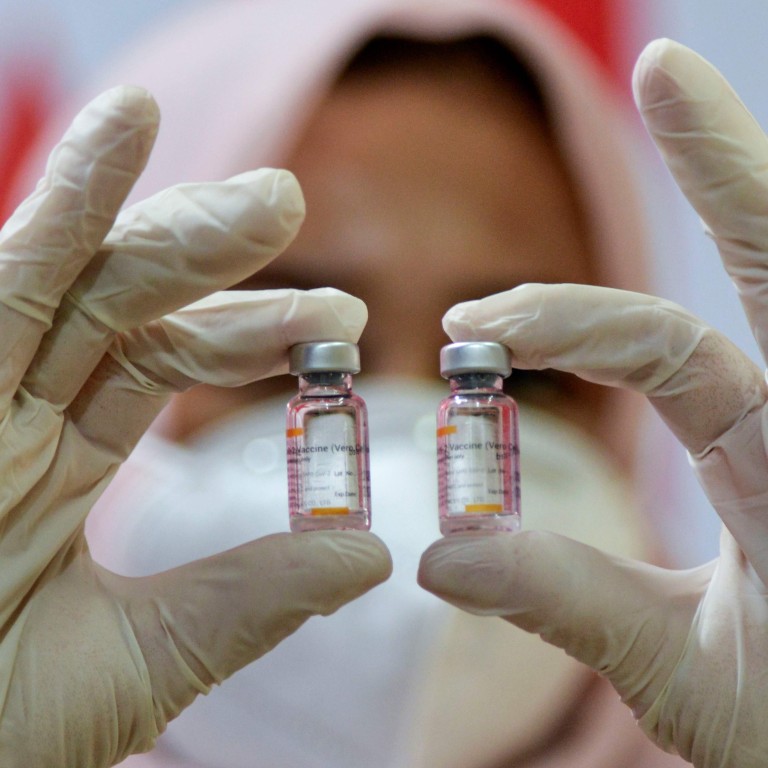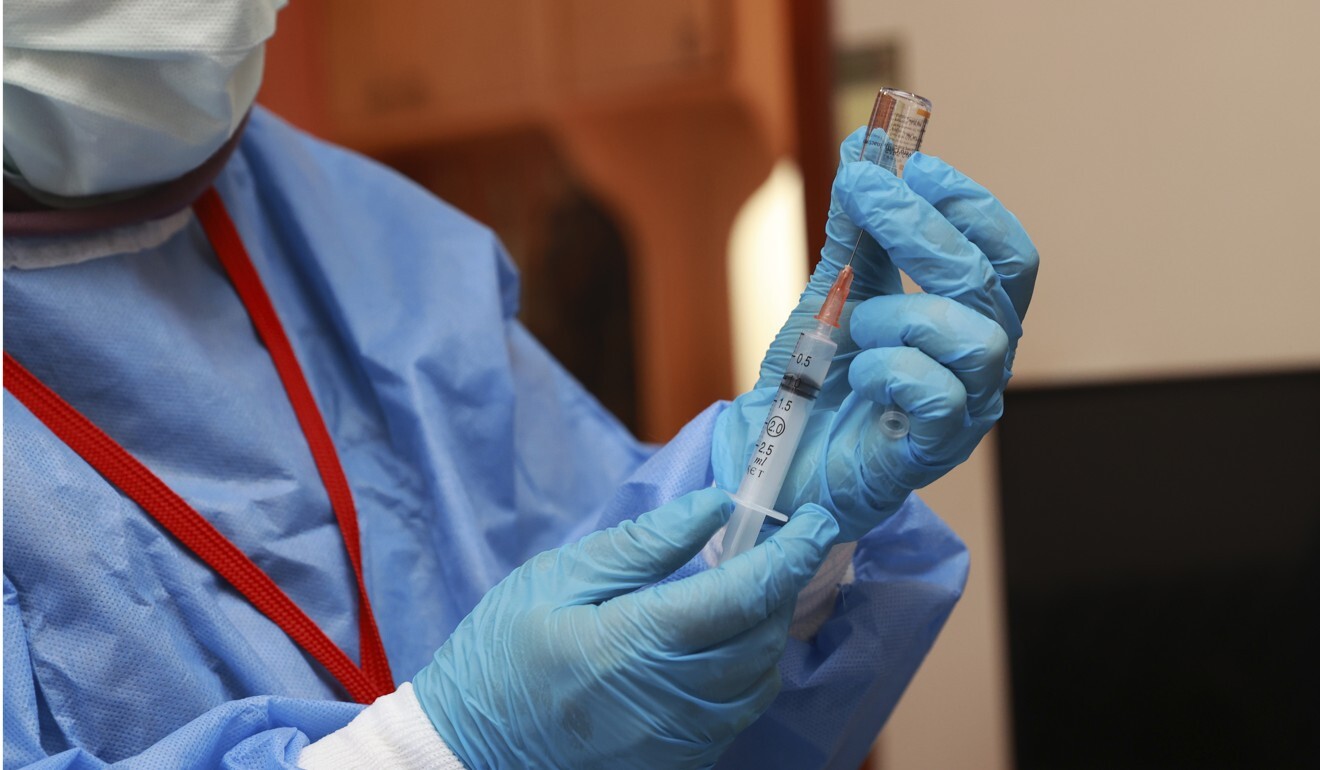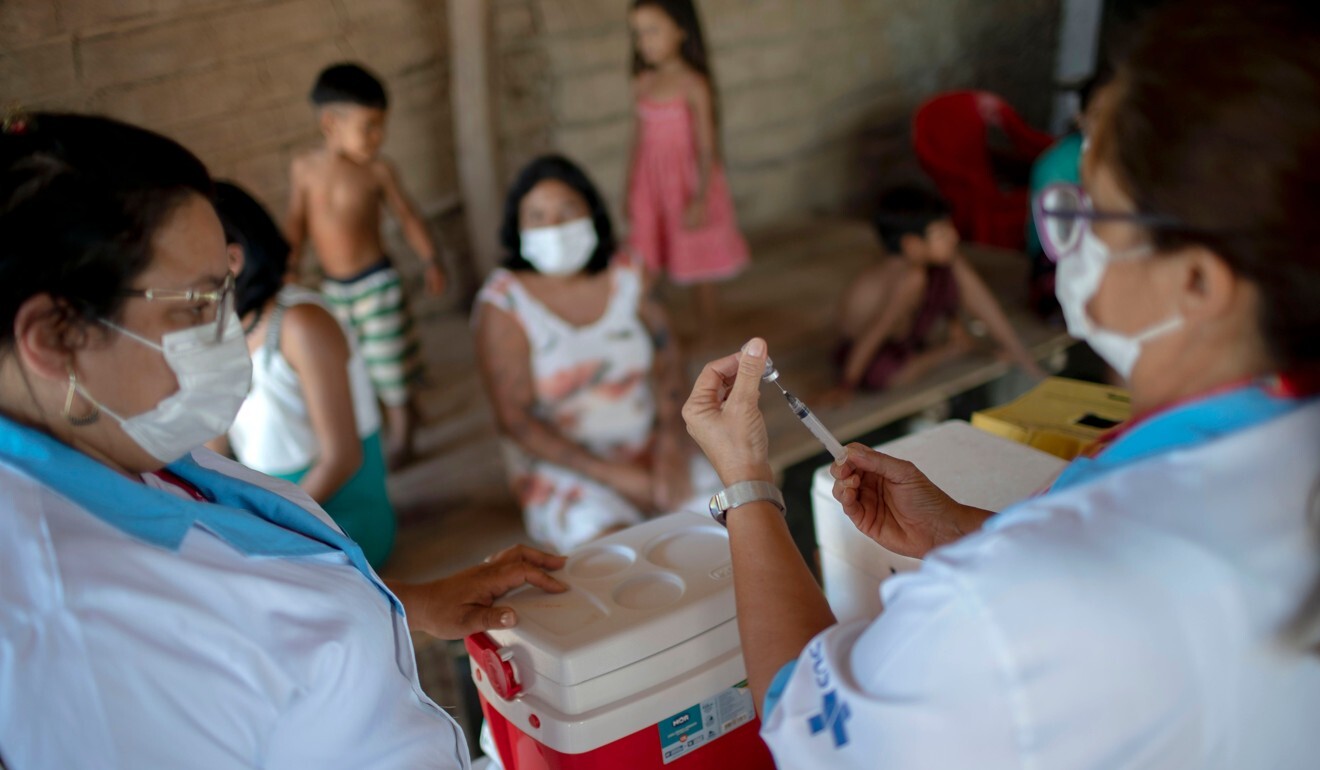
Coronavirus: Chile approves CoronaVac as Chinese manufacturer continues to defend its test results
- Vaccine ‘prevents serious clinical conditions that require medical assistance and hospitalisation, which is very encouraging’, public health institute says
- Sinovac says its product is designed to prevent people infected with the coronavirus from becoming seriously ill
The Chilean Public Health Institute granted authorisation on Wednesday, saying CoronaVac, as the product is known, was safe for all age groups. A final stage clinical trial conducted by Pontifical Catholic University of Chile showed the vaccine was effective in “blocking the coronavirus from reproducing”, the institute said.
“CoronaVac prevents serious clinical conditions that require medical assistance and hospitalisation, which is very encouraging,” said Heriberto García, director of the institute.

Chile, which has reported more than 680,000 Covid-19 cases and almost 17,600 deaths, placed an order for 60 million doses of Coronavac last month after sending experts to Beijing to assess Sinovac’s production facilities. The first shipment is expected to arrive in the South American country later this month.
As well as Chile, CoronaVac has been approved for emergency use by Indonesia, Turkey and Brazil, and is being used to inoculate health care workers in Azerbaijan.
Despite those shows of support, Sinovac has come under scrutiny from experts and health officials in Hong Kong, Singapore and the Philippines, all of which said they wanted to review the vaccine’s final stage trial data because of discrepancies in the findings from different test locations.
Explainer | What do the Sinovac coronavirus vaccine efficacy results mean?
Sinovac’s Brazilian partner, the Butantan Institute, said last week the vaccine was 78 per cent effective in preventing mild cases of Covid-19 and 100 per cent effective against severe and moderate infections. However, the overall rate, which also includes very mild cases that did not require hospital treatment, was only a little over 50 per cent.
Indonesia said earlier the vaccine was 65.3 per cent effective, while Turkey put the figure at 91.25 per cent.
Sinovac said recently that in a trial of nearly 1,400 people in Brazil, the efficacy rate was 70 per cent if the two doses were given three weeks apart, rather than two weeks as was the case in previous trials.
Yin Weidong, the company’s chief executive, told reporters on Wednesday that data from different trial sites could lead to the “scientific conclusion that the vaccine was protective”.
No vaccine could be 100 per cent protective and would show different degrees of protectiveness in different populations, he said.
For people with very mild symptoms, the protection rate was slightly above 50 per cent, but it would be higher for the general public as the trial participants were health care workers and therefore more likely to be exposed by virus, Yin said.
“The 50 per cent efficacy also suggests people should not drop their guard on prevention and control even after they have had a vaccine shot. Vaccination is only one important part of the overall epidemic prevention and control measures,” he said.

The vaccines produced by Pfizer-BioNTech and Moderna, which have been approved for use in the United States, Europe and elsewhere, are reported to be about 95 per cent effective at preventing people from getting sick with Covid-19, but their trials did not produce enough evidence to show if they would prevent asymptomatic infection and transmission.
A vaccine developed by the University of Oxford and AstraZeneca was shown to be 70 per cent effective at preventing symptomatic Covid-19 cases, and reduced asymptomatic transmission by 27 per cent.
China’s Sinovac defends Brazil results but regulators to look hard at data
Sinovac said in a statement its vaccine was designed to prevent people who were infected with the coronavirus from developing symptoms or serious disease.
“Protecting patients from getting sick, progressing to severe disease or death from an infectious disease is the most important thing,” it said.
“In the current circumstances of a global pandemic, the significance of a vaccine is primarily to lower the burden on health care systems.”
The company’s product “could reduce 78 per cent Covid-19 patients seeking medical care and [was] 100 per cent effective in preventing severe illness”, it said.

